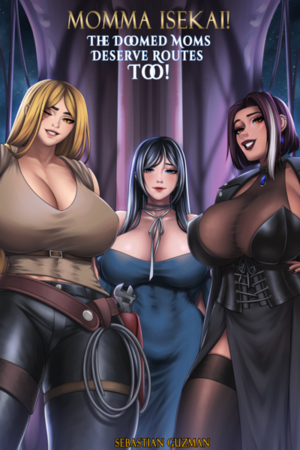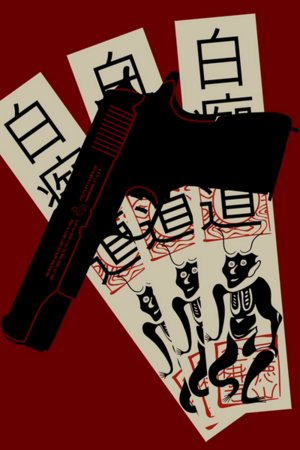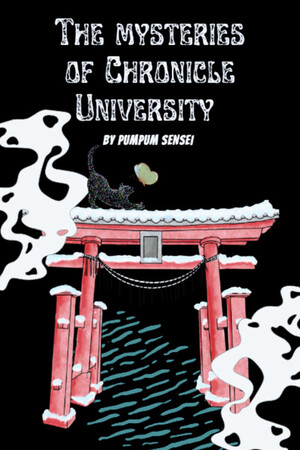Chapter 11:
Interlude
Reality Shift Protocol
(Ash’s POV)
My early life was a lesson in terror, mapped by the geography of my father’s rage.
I knew the cartography of his fury: the deepening slur of his words, the heavy, predatory tread of his footsteps.
My mother, bless her gentle, broken spirit, was always in the storm’s direct path.
I learned to make myself small, to vanish into the shadows of our suffocating home. Hide. Survive.
Tonight, the storm was a hurricane. His bellowing was a prelude, then came the sickening thuds, my mother’s small, choked sounds of pain.
I squeezed my eyes shut, a pillow clamped over my head. Don’t make a sound, Ash. It only makes it worse. The mantra of my childhood.
But the silence that followed a particularly sharp cry was worse.
I had to look. Peeking around the doorframe, the scene was seared into my memory: Mother, a crumpled heap on the worn linoleum. Father, a grotesque silhouette of fury, arm raised for another blow.
And then… the I receded, dissolving into the cold, observational you.
You watch. He is going to strike her again. You see your mother on the floor, a fragile doll.
You see your father, his face a mask of pure, animalistic rage. You see his arm begin its brutal descent.
You feel nothing. You are just a pair of eyes, a recording device, watching from a cold, distant star.
This was how you survived. But even from that frozen distance, the guilt, insidious and sharp, found its way in.
When the storm passed, leaving a wreckage of broken objects and shattered silences, the real torment began for me.
The replays in my mind, the relentless 'what ifs.' Maybe I deserved it.
Maybe not this specific beating, but some forgotten transgression, some inherent flaw in my being.
The guilt was painful. First, for hating him. you were supposed to love your father, wasn’t it?
But all you felt was a desperate, fervent wish for him to simply cease to exist.
Then, the corrosive guilt that you had somehow caused it. A careless word, a forgotten chore, some unknowable trigger for his rage.
That weight was a constant, crushing companion.
But the worst, the guilt that burrowed deepest and festered longest, was knowing you did nothing.
you watched. you hid. you chose yourself. And the self-loathing bloomed, a dark, cancerous thing in the hollow of your chest.
Night after night, year after year. This was the rhythm of you existence.
Books were your only escape. you waited, though you didn’t know for what.
One night, the storm reached its zenith. He was going to kill her.
The you knew it with a certainty that froze your blood.
His arm drew back, a brutal arc against the dim, flickering light. The air was thick with the coppery tang of blood and the suffocating weight of defeat.
And still, the you knew, with a shame that burned hotter than any fear, you would do nothing.
Then, the world stopped. Utterly.
The roaring in your ears ceased. The smell of alcohol vanished, replaced by something clean, cool, like the air after a thunderstorm.
Your father froze mid-swing, his arm locked in place, his face contorting from bestial rage to baffled confusion, then to a raw, primal terror.
He wasn’t looking at your Mother, or you. He was staring, wide-eyed, at the doorway.
A man stood there. you hadn’t heard him enter.
He was tall, indistinct in the shadows, yet he radiated an aura of profound, unshakeable calm.
“Enough,” the stranger said. His voice was quiet, yet it resonated through the room, absolute and final.
My father whimpered, a pathetic, animal sound, and stumbled back, collapsing against the wall.
The stranger moved to your mother, his steps silent. He knelt beside her.
His hand, wreathed in a soft, almost imperceptible light, hovered over her bruised temple. Her ragged breathing eased, her eyelids fluttered.
Then, he looked at you. Directly at you. His eyes, ancient and kind, held a deep, weary sadness.
But as his gaze met yours, that sadness seemed to… lift.
It was replaced by a flicker, then a wave, of something that looked almost like… happiness. A profound, almost startling relief.
Then the stranger turned to you. "Ash," he said, his voice pulling the "I" back from the precipice with a painful lurch, back into the trembling confines of my own skin.
“This ends now. He will not harm you or your mother again.”
He paused, the strange, unexpected happiness in his eyes softening into a look of earnest, almost solemn instruction.
“One day, Ash, you will meet a boy. When you see him, you will understand. Be his friend. Be his mentor and teacher. Be his greatest ally.”
“Who…?” I whispered, my voice a dry rasp.
The gentle, knowing smile returned, the happiness in his eyes deepening. “You will know him when the time comes.”
He said the police would be arriving shortly. That my father would be… “accounted for.”
Then, as silently as he’d appeared, he was gone, fading like a half-remembered dream, leaving only that clean, cool scent and the echo of his impossible promise.
The police came. My father vanished from my life.
The nightmare was over.
The silence that settled in our small, state-provided apartment was different. It was a quiet filled not with dread, but with the stranger’s words, his promise.
And with the unsettling, indelible memory of that brief, impossible happiness in the eyes of a man who had rewritten my reality.
This stranger, capable of such impossible feats, his power palpable even in memory… he felt important, like an anchor point in the chaos of my young life.
That promise became my bedrock. "Be his friend, mentor, teacher, greatest ally."
How? I didn't know.
What would this boy need? I had no idea.
So, I decided to prepare for everything.
The library became my new sanctuary, but not for escape.
It was a training ground. I devoured books on logic, philosophy, history, psychology, military strategy, physics, literature – anything I could get my hands on.
My mind, always sharp, drank it in, connecting disparate fields, building a vast, intricate web of knowledge.
It came easily, that edge I’d always possessed now honed by a singular, driving purpose.
Then, I looked at my own frail frame. An ally, a mentor, might need more than just a quick mind.
I found a small, unassuming dojo run by a quiet old master. I learned discipline, control, the art of movement.
I ran until my lungs burned, pushed my body until it ached, transforming it from a vessel of fear into an instrument of will.
I had no specific art to teach this prophesied boy, so I learned a bit of everything, from the foundational principles to the more esoteric applications.
I learned to observe, not just people, but systems, patterns, the subtle currents beneath the surface of reality.
The stranger's prophecy became the guiding principle of my existence. I dedicated myself to preparation, absorbing knowledge, honing my body and mind, always waiting for the moment of recognition he’d foretold.
Years passed in this focused pursuit. Then, when I was about ten, a new student named Rey Amaranth joined my grade.
The first time I saw him properly, across the crowded schoolyard, the pieces clicked into place with an almost audible snap.
He was younger than the stranger, of course, his face unlined, his eyes holding a dreamy innocence rather than ancient weariness.
But the underlying bone structure, the set of his jaw, even certain unconscious mannerisms like the way he'd tilt his head when lost in thought, then I knew.
Right there.
This was the boy prophesied, the younger version of the stranger, my savior. The resemblance was too precise to be coincidental.
The confirmation of time travel, the astonishing truth of who this boy would become and who he already had been to me, settled with chilling, absolute certainty. My purpose, so long an abstract concept, now had a face, a name.
From that moment, my observations sharpened. I began to formulate plans, considering how I might subtly integrate myself into his life, to begin fulfilling the stranger’s directive.
I anticipated a complex undertaking, given my own reserved nature and the sheer weight of the prophecy.
However, Rey Amaranth proved to be… disarmingly open.
My initial thoughts about needing a careful strategy were largely unnecessary.
He was easy to approach, quick with a genuine, if sometimes distracted, smile.
When I offered help with a tricky math problem during a study period, expecting a polite but brief interaction, he launched into an enthusiastic, if rambling, explanation of a story idea the problem had sparked in his mind.
He seemed to readily accept my presence, my quiet willingness to listen or offer a different perspective.
It was… unexpected. I had prepared for the need for subtle maneuvering.
Instead, I found an unguarded friendliness, a willingness to connect that required little prompting from my end.
His kindness was not a performance; it was an innate part of him.
The boy who would one day possess world-altering power was, at his core, simply… accessible. My "mission" to become his friend was achieved with an almost startling ease, less a matter of strategic implementation and more a natural consequence of his own affable nature.
The dynamic shifted subtly over time. Our casual conversations deepened.
He began to seek out my perspective, initially on schoolwork, then on more abstract ideas, on the stories he was constantly crafting in his head.
I, in turn, found myself offering more than just detached observations, guiding his thinking, challenging his assumptions, planting seeds of logic and critical analysis.
I remember one afternoon, perhaps a year or so after my recognition of him, we were discussing a particularly convoluted piece of historical fiction he was struggling with for an assignment.
I broke down the narrative structure, pointed out the author’s thematic intent, and suggested a more analytical approach.
He listened with rapt attention, then looked at me, a thoughtful frown on his face.
"You know, Ash," he said, "you explain things really well. You make complicated stuff… make sense."
He hesitated, then a small, earnest smile spread across his face. "It’s like… you already know how it all fits together."
He extended his hand, a boyish, spontaneous gesture. "Thanks. Seriously. It’s good having someone like you around."
I met his gaze, seeing the open trust there, the nascent respect. This was it.
Not the grand, dramatic moment I might have once envisioned, but something quieter, more genuine.
I took his offered hand. His grip was firm, surprisingly so for his dreamy demeanor.
"Likewise, Rey," I replied, my voice even, but a sense of profound, almost solemn significance settled within me.
This was more than just a schoolyard friendship. This was the beginning.
Mentor and mentee. Friend. And, as the stranger had decreed, his greatest ally.
The path ahead was undoubtedly complex, fraught with dangers I could only begin to anticipate, but its first step had been taken, not through intricate planning, but through the simple, uncalculated openness of the boy I was destined to guide.




Please sign in to leave a comment.